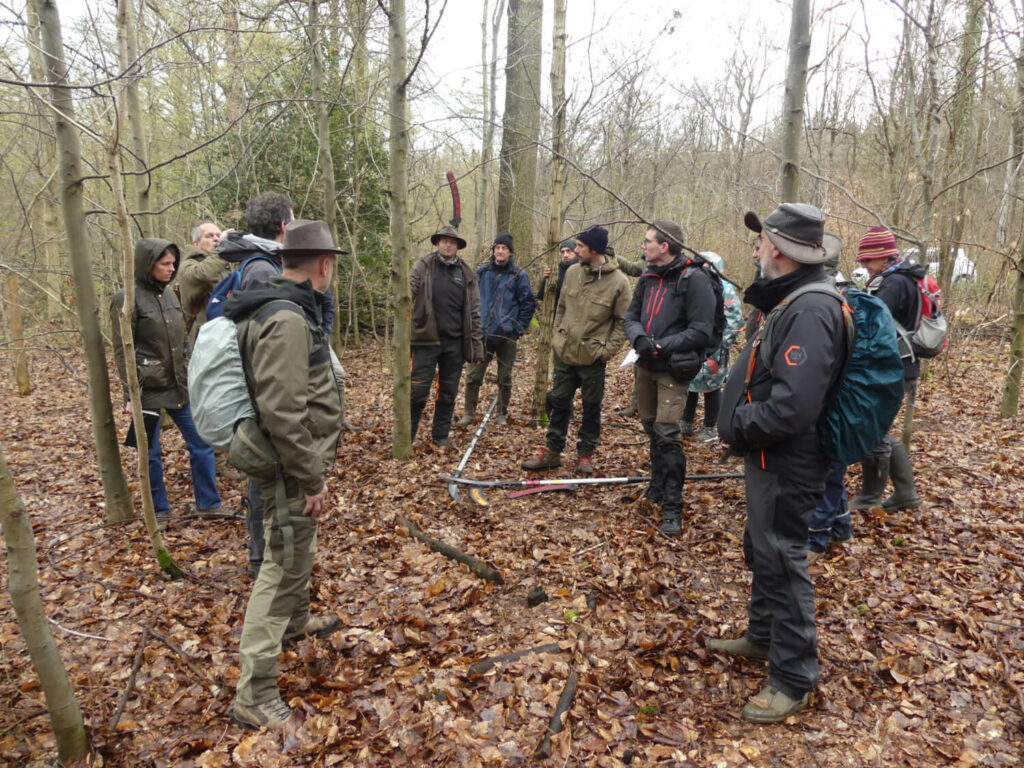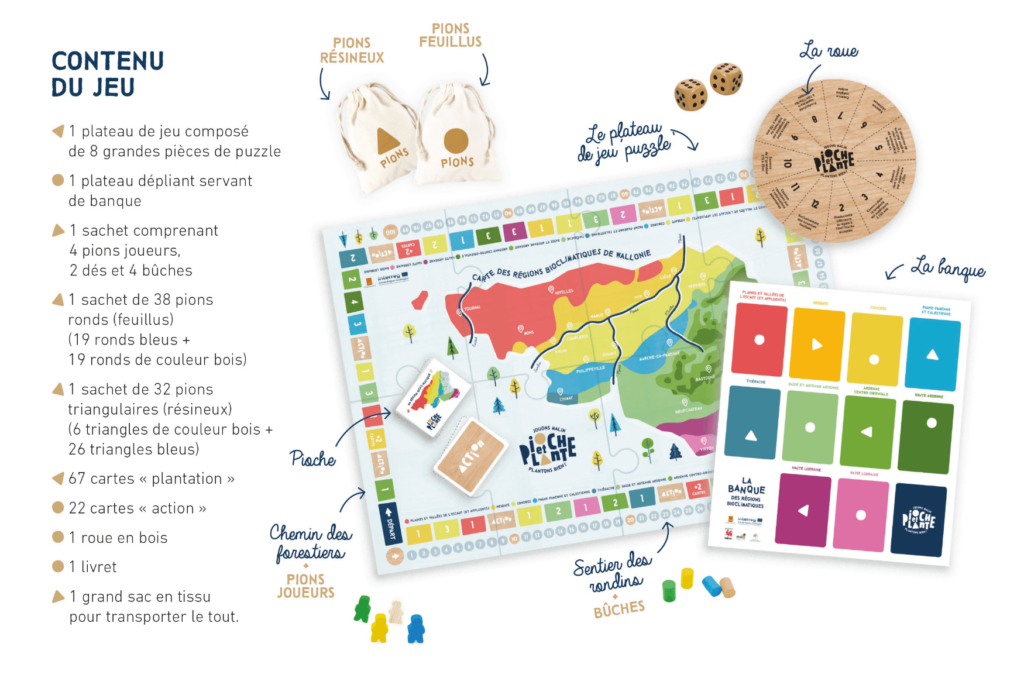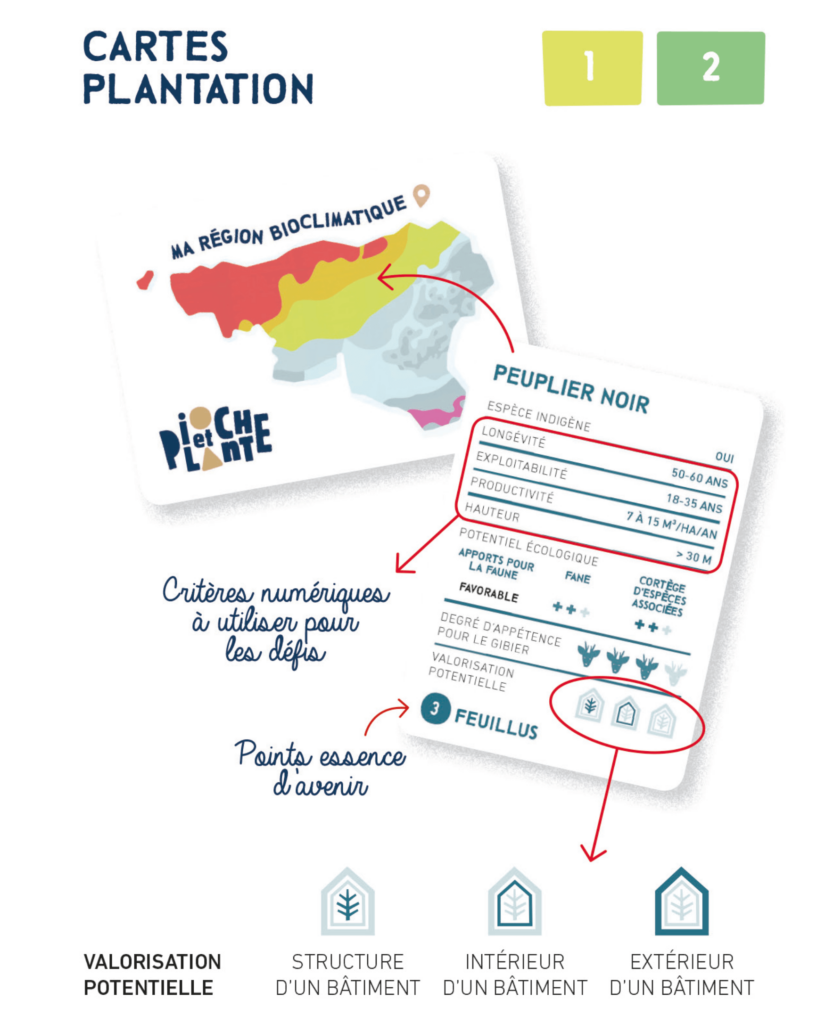Teachers, Guides and Leaders
RFSB offers a range of training courses and workshops for teachers, leaders, nature guides, etc. To find out about the dates already scheduled, consult our agenda.
Introduction to forestry and forestry training
Once a year, RFSB organises an introductory course on forests and forestry, aimed primarily at teachers, leaders, nature guides, etc.
The trainers will present the multifunctional forest and its links with mankind, the one that provides us with multiple services and that it is important to respect. Forests provide us with oxygen and drinking water, store carbon, produce wood and protect biodiversity. It is a place to recharge our batteries, and a place for sporting and leisure activities. Every forest has a history, linked to the way of life of previous eras. It is constantly changing, but very slowly. It is both a victim of climate change and a solution for mitigating it.
The role of forest management is central: choosing the right tree species for the future, maintaining the paths, dividing up the areas according to various objectives (quiet areas, public areas, timber production areas). The forester ensures that there are always trees of all ages and that the stands are in good health, so that the forest is sustainable.
This systemic and humanist vision will be passed on to you.
Target concepts and skills
- History of the forest and links with mankind
- How the forest ecosystem functions
- Notions of plant physiology, pedology, phytosociology and forest flora and fauna
- Private and public forest stakeholders in Belgium
- Forestry cycle work (theory and practice)
- Educational activities or walks in the forest (theory and practice)
- Teaching resources on the theme of Man and the Forest

Practical information
- Type of activity : Forest training
- Location: Namur
- Duration: 2 days
- Number of attendees: 15 attendees
- Price : 270 excluding VAT 21% (+ €25 for the book "The Illustrated Life of the Forest")
- Note: If you are a company/not-for-profit organisation/school and would like to offer the training to your employees, please contact us. request a quote for personalised training.
Training: "Taking a multifunctional, cross-sectoral approach to forests, through their ecological, economic and social implications".
Forests play an essential role in meeting the major current and future challenges (biodiversity and climate change). The aim of this course is to take a systemic approach to the forests of our regions, integrating all aspects of their multifunctionality.
Through a variety of learning approaches, participants are made aware of the challenges facing the forest and the diversity of forest stakeholders and users.
The course provides an opportunity to question and take a critical look at the sustainable management of forests and their ecosystem services. It puts into context a range of subjects covered in the reference frameworks and job profiles: forestry, energy, wood materials, construction, continuing education, environmental protection, etc.
Participants are invited to discuss the teaching tools and themes covered during the course in the light of their own teaching or facilitation practice.

Practical information
- Type of activity : Mainly classroom training (field training depending on training location)
- Location: Wallonia and Brussels
- Duration: 2 days (weekdays during the day)
- Number of attendees: 14 to 20 participants
- Price : Free for teaching staff via the IFPC continuing education catalogue (meal included)
- Registration form: https://ifpc-fwb.be/
- Note: If you are a company/not-for-profit organisation/school and would like to offer the training to your employees, please contact us. request a quote for personalised training.
"Pick and Plant" workshop
Come and play "Pick and Plant"! Discover the issues surrounding our woods and forests and learn how to cultivate their diversity! By planting as many promising species as possible in the right places, while maintaining a balance between timber production and environmental protection, you can help to perpetuate the richness of Wallonia's forests. But to do so, you'll need to think strategically and rise to a number of challenges. Who among you will go the furthest on the logging trail and win the title of best forester?
Play smart and, above all, plant well! The main aim of this awareness-raising tool is to provide a better understanding of the various aspects of forest management through a fun approach.


Practical information
- Type of activity : Classroom learning
- Location: Gembloux (or your premises)
- Duration: 2h30
- Number of attendees: 8 to 24 participants
- Price : on quotation
- Note: If you are a company/not-for-profit organisation/school and would like to offer the training to your employees, please contact us. request a quote for personalised training, at your or our premises.
Contact
Julie Goffette | Forest Friends Project Manager
julie.goffette@srfb-kbbm.be
